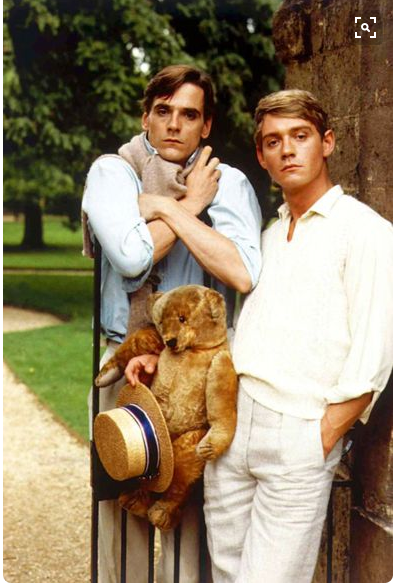I’ve been lost in Brideshead Revisited for days, thanks to a new version on my iPlayer. It’s just struck me that a complex novel like Brideshead means completely different things at varying stages of life. It’s as though the book is reading you, not the other way round.
I first read it in my early teens, without really understanding it at all. It seemed to reek rather deliciously of snobbery about posh families and big houses, amid dull chunks on war and religion. Then the TV version unfurled on our screens in 1981 with that wonderful Geoffrey Burgon fanfare. Anthony Andrews and Jeremy Irons, wearing white suits and pouting moodily, were irresistibly louche. It was no longer the magnificent country pile I envied but the Oxford life of boozy debauchery, teddy bears and forelock-tugging servants.
Now, thirty-odd years on, the elegiac tone which runs through the book hits me more than anything else. I’m sure Charles Ryder is still a snob – he is as much in love with stately Brideshead and the Marchmain title as he is with the various Flytes. But lost youth, missed opportunities, relationships gone unaccountably awry seem the relentless focus of the book. There is nothing that Ryder does not pine for. I love it, though it’s not exactly cheery. Cathartic, maybe. And sometimes, also, incredibly funny.

I’ve always thought of Jane Eyre as a book which grows up with the reader, but maybe they all do and I just haven’t noticed. There aren’t that many books that I re-read regularly – there are always so many new books out that it seems a waste to go over old ground – but I’ve found it really moving to revisit Brideshead with poor old Charles. I wonder what will stand out next time.
